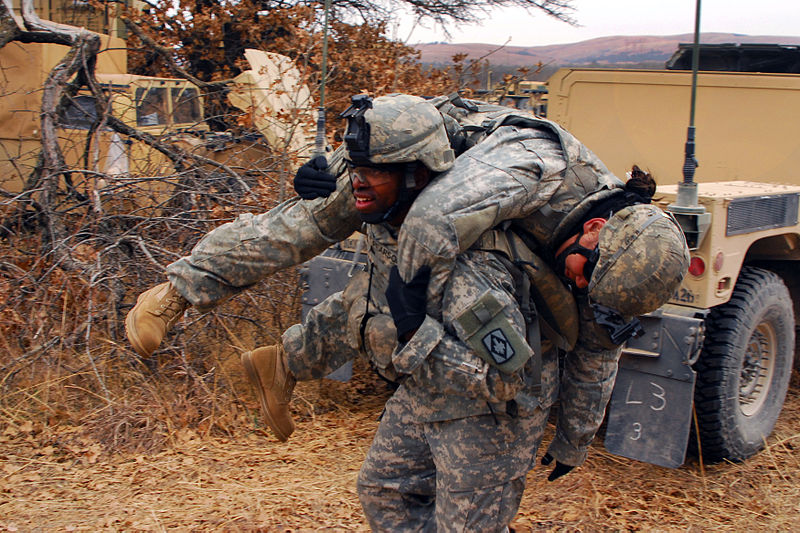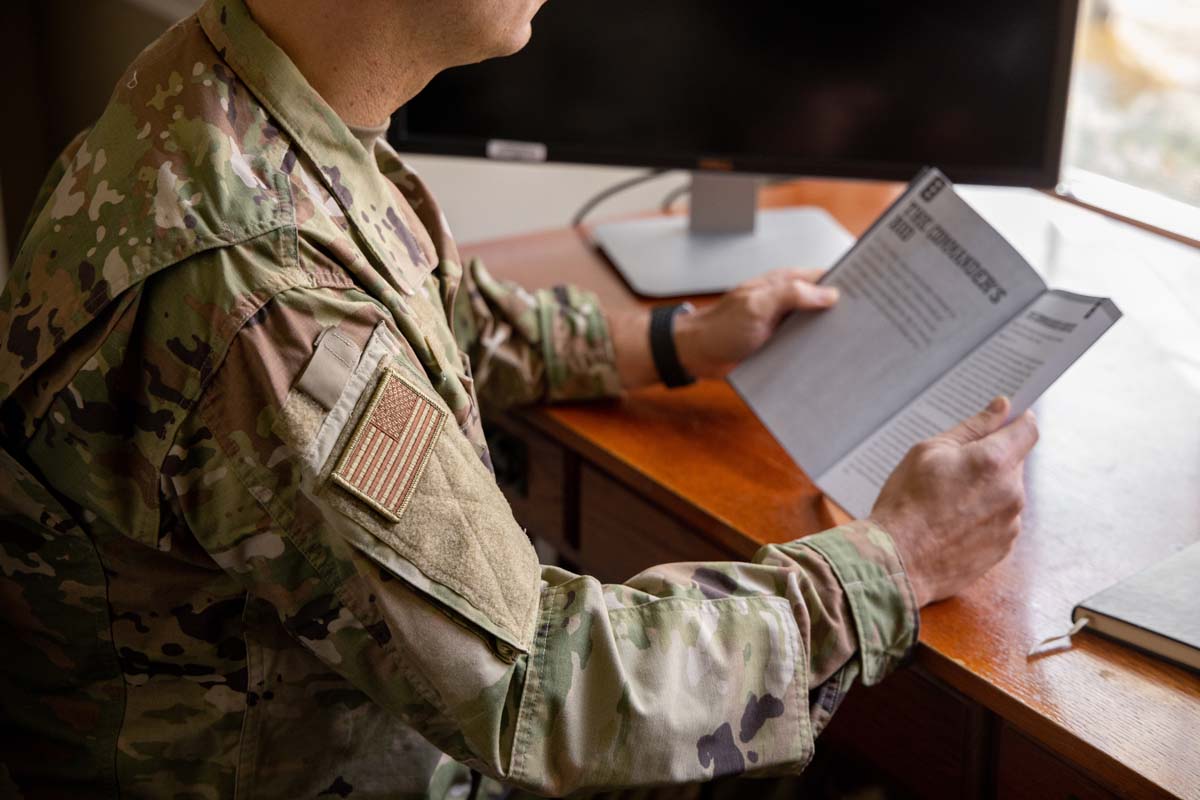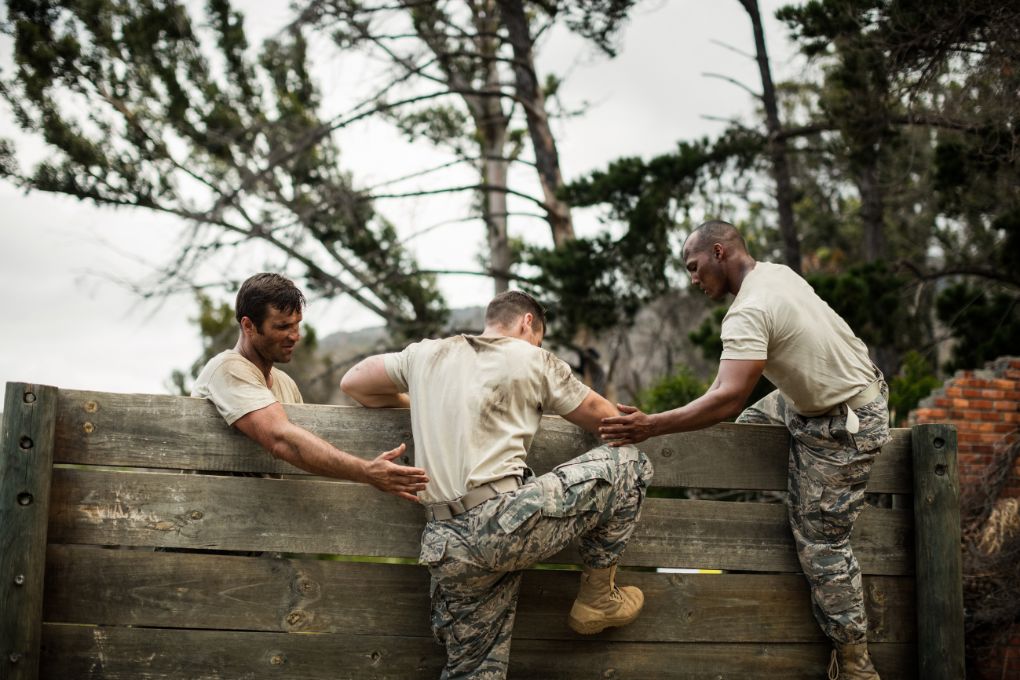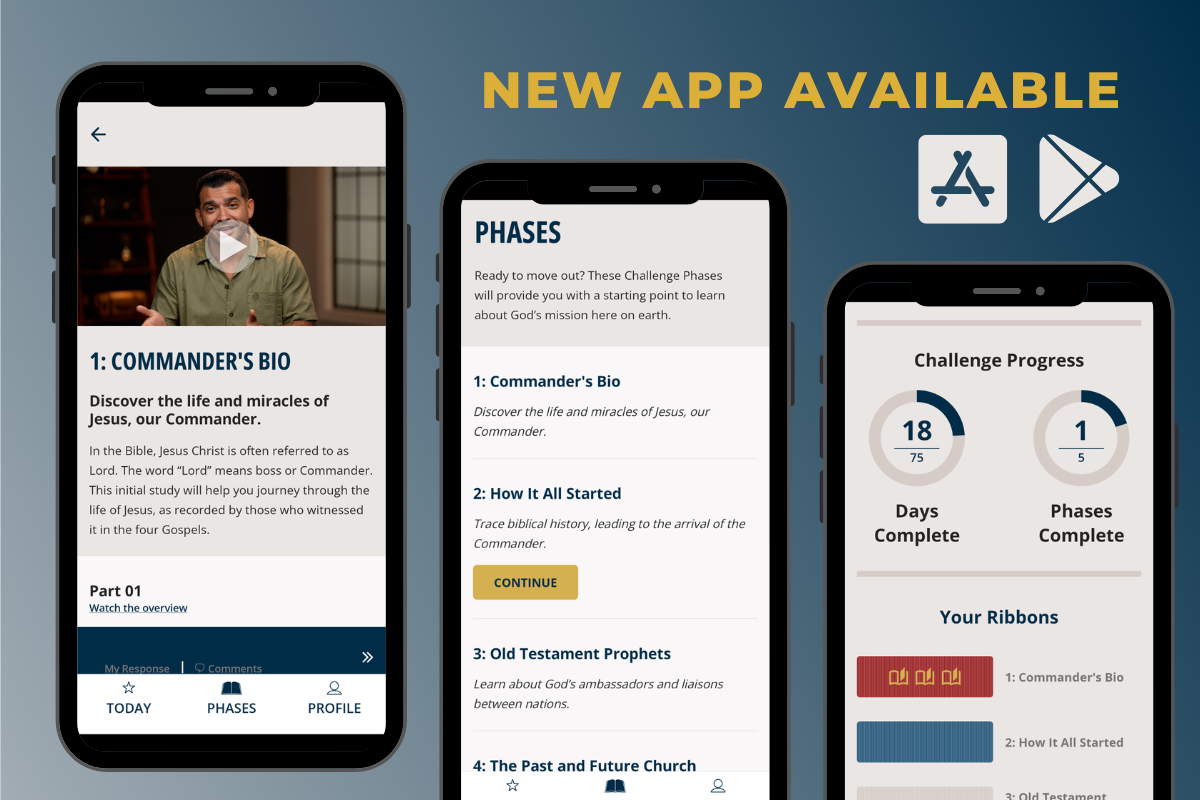He was a decorated senior Army officer, and I was friends with him and his wife. I was also his chaplain. He was nearing retirement, and pondering the future. He shared with me how he believed he too often put his career ahead of the needs of his wife. But when he retired, he was going to travel with her, buy her a dream home, and do whatever she wanted. Then tragedy struck. Shortly before he retired, his wife was unexpectedly diagnosed with a serious illness, and died very quickly. He felt robbed of the chance to make up for his shortcomings to his wife, who he loved dearly. As his chaplain, I tried to come alongside him through this journey of grief and regret. As someone trained and very experienced in crisis counseling, I thought we were making good headway.
Then one day I got the terrible news. He had put all his affairs in order. He was dressed in his dress-blue uniform. He sat down at his desk in his den, which was one of his favorite places as it had a view of their beautiful yard. He wrote a note. Then he took his pistol and ended his life.
I was shocked to say the least. His grown children lost a father, the Nation lost a hero, and I lost a friend. His anguish was over, but it was only just beginning for those of us who cared about him. Such is the legacy of suicide. After his funeral, I did the only thing I could. I vowed that for the rest of my career that I would do all that I could to raise awareness regarding suicide.
Sadly and frustratingly, I can tell you from experience that suicides like my friend’s are not uncommon. Suicide among Service Members, Veterans, and their families continues to be a serious and ongoing concern.
Not An Isolated Incident
By the stats, in 2019 alone:
- The Department of Veterans Affairs reported that 6,261 veterans died by suicide.
- The Department of Defense reported
- 580 suicide deaths among Active Components, Reserve, and National Guard service members in 2020;
- and 202 suicide deaths among military family members in 2019.
While the suicide rates for 2022 are so far lower than last year, it is still too high.
Suicide in the general population has been increasing, the rate among service members and veterans remains too high despite ongoing efforts to reduce suicide through the implementation of federal policies, programs, and practices. For more than a decade, the suicide rates have been higher and have risen faster among veterans as compared to non-veterans. Women veterans die by suicide at almost twice the rate than nonveteran women, and veterans ages 18-34 have a suicide rate almost three times higher than nonveterans the same age. In the military, young (less than 30 years of age) and enlisted service members are at heightened risk. Among service members, veterans and their family members, as with the general population, firearms are the most common method of suicide.
Suicide is a complex problem with no single cause and no single solution. Risk factors for suicide among service members and veterans are both similar and different than those for nonmilitary and veteran groups. We know, however, that service members and veterans are at higher risk for some of the common risk factors, including experiencing a mental health condition and having a physical health problem.
Situational Awareness
We do know that when a person like my friend is suicidal, they are experiencing three emotional states: helplessness, hopelessness, and worthlessness. All three of these will be present in someone who is imminently suicidal, but they are not always obvious to those around them. Note that while these seem rational to the distressed person, they are truly irrational thoughts.
One emotional state is helplessness.
Here the person is looking at their past and saying to themselves, “I am a victim of my own choices and circumstances. I have made my bed, and now I have to lie in it, like it or not.” My friend looked back on his life choices, and knew there was nothing he could do to change them. He would not forgive himself nor accept the forgiveness of Christ for things in his past.
Another emotional state is hopelessness.
Here the person is looking to their future, and reaches some irrational conclusions. As far as they can see, there will be no end to their suffering. Nothing is going to be any different tomorrow. Contrary to what Little Orphan Annie sings in the musical Annie, the sun is NOT going to come out tomorrow. Because his wife had passed so soon, my friend saw nothing good ahead of him in his life.
The third emotional state is worthlessness.
Here the person, based on their helplessness and hopelessness, concludes that they no longer have any value to the world, that they are a zero. They see themselves as failures. Some conclude that no one really cares if they live or die. Some reach the terrible and false conclusion that the best thing that they can do for their family, friends, and the world is to die.” While I can only speculate, it appears that my friend had reached this conclusion in spite of having many good friends in his circle, including me.
As I said, the signs of a person being suicidal are not always obvious. However, there are some outward actions that are often called “red flag signs.” If we see any of these in someone we know, we should immediately be concerned and take them seriously.
- Expressing feelings or statements of hopelessness
- Easily goes into rage or anger, and/or keeps talking about seeking revenge
- Talks about feeling trapped
- Increased alcohol or other drug use
- Withdrawal from others
- Anxiety, agitation, or chronic sleep problems
- Dramatic mood changes
- Feelings or statements that reflect not having a reason to live or a sense of purpose
- Threatening to hurt or kill themselves
- Looking for ways to kill themselves; seeking access to pills, weapons, or other means
- Talking or writing about death, dying, or suicide (if it is out of the ordinary)
- Giving away prized possessions
- In the midst of a difficult life situation the person suddenly becomes calm and placid
If you notice these warning signs in someone, it is very important that you ask them directly if they are thinking about suicide…
If you notice these warning signs in someone, it is very important that you ask them directly if they are thinking about suicide and help them access available resources if needed. It is true that someone can exhibit one or more of these red flag signs and not in any way be suicidal. But it is worth the effort to talk to the person about their behavior no matter what.
Being A True Battle Buddy
We do not have to become suicide counselors in order to save lives, but just be a good friend or battle buddy. In Genesis 4:9, God asks Cain where his brother Abel is. Cain says to God, “I do not know. Am I my brother’s keeper?” While the Bible does not give God’s direct answer to this, it does imply that God’s answer would be, “Yes, you ARE your brother’s keeper!” Each of us is indeed the keeper of our brothers and sisters in arms. We need to act when we think there could be a concern.

There is no question that we can begin to reduce the suicide rate one life at time just by being a caring friend, or trusting in a caring friend. King Solomon promised us that, “Generous persons will prosper; those who refresh others will themselves be refreshed,” (Prov 11:25). One of the simplest and most direct suicide prevention programs that I have seen is the Army’s A.C.E. program. It shows us how we can be a good friend to someone around us. A.C.E. stands for Ask, Care, and Escort.
ACE: Ask
First, if you know someone going through a tough time, and they seem depressed or withdrawn, have the courage to ASK them if they have any thoughts about hurting themselves. I worked with one suicide attempt survivor who told me what put him over the edge is that no one cared enough about him to ask how he was doing even though they saw the dark changes in him. He told me that if even one person had asked him, he most likely would not have attempted to end his life. Just as importantly, if you are that person having a tough time, be honest with yourself about whether you are seriously entertaining suicidal thoughts. Such thoughts do not make you a crazy person! Rather, they make you a human going through a really tough time. But you should not keep those thoughts to yourself! The writer of Hebrews offers us this advice that carries with it a promise: Let us then with confidence draw near to the throne of grace, that we may receive mercy and find grace to help in time of need (Hebrews 4:16). Trauma in our lives loses its power when it loses its privacy.
ACE: Care
Second, show that you CARE. Make the time to be with the person you are concerned about. Try not to leave them alone. Listen to what they have to say with a patient and caring ear. Refrain from offering platitude or advice. As the Apostle James asks us, “What good is there in your saying to them, ‘God bless you! Keep warm and eat well!’—if you don’t give them the necessities of life? (James 2:16)” The life necessity of the potentially suicidal person is that they need someone to truly care enough about them to just listen without judging. Each of us can be that person. Long periods of silence are just fine. It sometimes takes a while to be able to put feelings or emotions into words. Let them tell their own story in their time in their own way. Have patience. Pray with and for them. The writers of Psalm 46:1 remind us that, “God is our shelter and strength, always ready to help in times of trouble.” If you are the person entertaining thoughts of suicide, do whatever it takes to be with others, such as family, good friends, or your church. Don’t put this off. Find someone to talk to now.
ACE: Escort
Finally, agree to ESCORT the person to get help. This is not only encouraging to the person, but it ensures that they follow through in meeting with someone who can help them. Likewise, if you are the person in need, do not be afraid to ask someone close to you if they would come with you to get some help. Battle buddies make a difference and can save lives. I once had a Troop confess to me that he was having suicidal thoughts, and even had a plan and means. I ordered him to come with me to Behavioral Health. He was furious. When I handed him off to the professionals, he looked at me with fire in his eyes and said, “I hate you chaplain!” I replied, “I would rather you be alive to hate me the rest of your life than for you to die because I did nothing.” He never spoke to me again. But he lived. It was worth it.
It has been said that suicide is a long term solution to a short term problem. We can reduce the suicide rate one precious life at a time if we are willing to ASK, CARE, and ESCORT.
Where To Turn For Help
There are some excellent resources available to anyone who is suicidal or thinks they know someone who is.
- TALK TO SOMEONE: Your chaplain or local pastor is a strong local resource.
- CALL OR GO ONLINE: It is always a good choice for anyone in crisis to call the National Suicide Hotline at 988 (then press 1) or text TALK to 741741. You can also visit their website for more information: 988lifeline.org. Someone is there 24/7 to confidentially talk with you about your concerns. These calls are free, and you decide how much information to share. They can also connect you with local resources if you desire.
- FREE RESOURCES: The Armed Services Ministry offers two very helpful and powerful free Christian online resources can be found here on our website.
-
- God Understands is an online video driven resource that addresses the eight spiritual injuries of war. It was developed by VA chaplains. Those eight injuries address key issues faced by those who might be suicidal.
Watch a veteran who faced thoughts of suicide tell his story in our God Understands Study on Despair and Hopelessness.
https://godunderstandsmilitary.org/studies/despair/ - Never Alone is an online video driven program that addresses issues faced by those who have gone through trauma. This powerful program shows how God’s Word can be transformational for those facing post-traumatic stress issues.
https://neveralonemilitary.org/
Check out the Never Alone section on Suffering and learn how you’re not alone. https://neveralonemilitary.org/modules/module-1/suffering/
- God Understands is an online video driven resource that addresses the eight spiritual injuries of war. It was developed by VA chaplains. Those eight injuries address key issues faced by those who might be suicidal.

4. HAVE YOU LOST SOMEONE? One final note. The person who commits suicide leaves behind people who feel grief and guilt over this loss. No one is to blame over the death of a suicidal person except that suicidal person! But when we experience such a loss, it is important for us to find someone to talk to. Family therapy might be necessary in some cases. Reach out to a chaplain or pastor for the best local options. There is also an online resource at afsp.org/ive-lost-someone which offers links to support groups, online resources, and outstanding articles.
September is Military Suicide Prevention Month. I prefer to call it Military Be a True Friend Month. Whatever we call it, it is urgent that we begin to reduce the annual Military suicide rate one life at a time. Can our Nation count on you? I pray that you answer with a resounding “YES!”
No matter what complex trials, secret sins, or dark night of the soul that draw us or someone we’re close with to the brink, we can rest in knowing that there is one who understands and sees us. We must remember that we are not alone.
“Jesus understands every weakness of ours, because he was tempted in every way that we are. But he did not sin! So whenever we are in need, we should come bravely before the throne of our merciful God. There we will be treated with undeserved grace, and we will find help.” Hebrews 4:15-16 (CEV)







